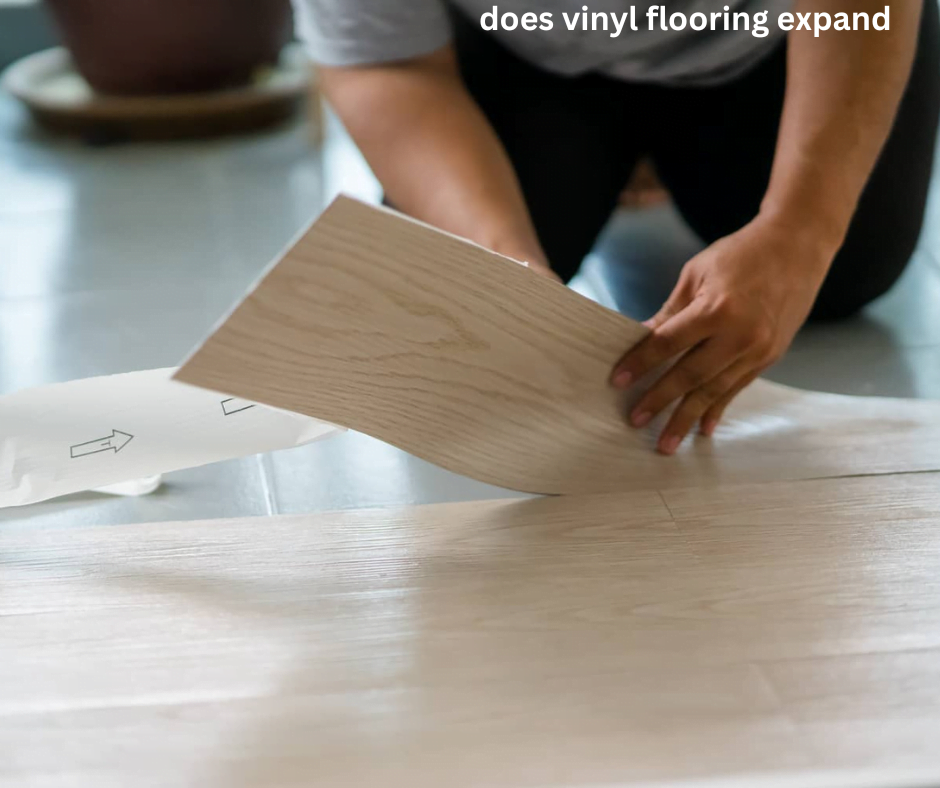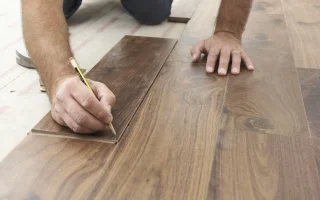Welcome to our blog post where we dive into the fascinating world of vinyl flooring! If you’re considering installing this versatile and stylish flooring option in your home or office, it’s important to understand all its nuances. One common question that arises is whether vinyl flooring can expand. Today, we’ll explore the factors that contribute to vinyl flooring expansion, why it occurs, and how you can prevent it. So grab a cup of coffee and join us as we unravel the mysteries of vinyl floor expansion!
What is vinyl flooring?
Vinyl flooring is a synthetic flooring material that has gained immense popularity in recent years. It is known for its durability, affordability, and wide range of design options. Vinyl floors are made up of multiple layers, each serving a specific purpose.
The topmost layer, also known as the wear layer, provides protection against scratches and stains. It is usually transparent and adds to the overall visual appeal of the floor. Beneath the wear layer lies the printed or decorative layer which gives vinyl flooring its unique patterns and designs.
Next comes the core layer, which can be either solid vinyl or composed of composite materials such as fiberglass or PVC (polyvinyl chloride). This layer contributes to the stability and strength of the flooring.
There’s an optional backing layer that enhances comfort underfoot and provides additional noise reduction properties.
One of the key advantages of vinyl flooring is its versatility—it can mimic various natural materials like hardwood or stone while offering greater resilience and easy maintenance. With advancements in technology, manufacturers have developed luxury vinyl planks (LVP) and luxury vinyl tiles (LVT), which further elevate this type of flooring’s aesthetic appeal.
Vinyl flooring combines durability with style to provide an attractive yet practical option for any space. Whether you’re looking to revamp your kitchen or update your office lobby, vinyl floors offer endless possibilities without breaking your budget
How does vinyl flooring expand?
Vinyl flooring is a popular choice for many homeowners due to its durability, versatility, and affordability. However, like any type of flooring, vinyl can expand under certain conditions. So how exactly does vinyl flooring expand?
One factor that can cause vinyl flooring to expand is changes in temperature. Vinyl is sensitive to heat and cold, so extreme fluctuations in temperature can cause it to expand or contract. This expansion can result in buckling or warping of the floor.
Another factor that contributes to the expansion of vinyl flooring is moisture. When exposed to high levels of humidity or water damage, the individual planks or tiles may absorb moisture and swell up. This swelling can lead to gaps between the tiles or even lifting of the entire floor.
Additionally, improper installation techniques can also contribute to vinyl flooring expansion. If the adhesive used during installation is not applied evenly or if there are gaps left between the tiles, it could allow for movement and subsequent expansion.
To avoid these issues with expanding vinyl flooring, it’s important to take preventative measures such as ensuring proper acclimation before installation by allowing the material time adjust to room temperature and humidity levels. Additionally, using a high-quality underlayment beneath your vinyl floor can provide added protection against moisture-related expansion.
Regular maintenance and cleaning practices are also crucial in preventing excess moisture from seeping into your floors and causing them to expand over time.
By understanding why vinyl expands and taking necessary precautions during installation and maintenance processes you can ensure that your floors remain stable without any unwanted expansions!
Why does vinyl flooring expand?
Vinyl flooring is a popular choice for many homeowners due to its durability, affordability, and versatility. However, one issue that can arise with vinyl flooring is expansion. But why does vinyl flooring expand? Let’s delve into the reasons behind this phenomenon.
One factor that can cause vinyl flooring to expand is changes in temperature and humidity levels. Vinyl has a tendency to expand when exposed to heat and moisture, causing it to swell or warp. This expansion can result in unsightly gaps between the planks or tiles.
Another reason for vinyl flooring expansion is improper installation. If the subfloor is not properly prepared or if there are any imperfections such as humps or dips, it can lead to movement of the floor covering over time.
In some cases, poor quality materials may also contribute to vinyl flooring expanding. Low-quality vinyl may not have sufficient stability or structural integrity, making it more prone to expanding under certain conditions.
To avoid issues with expanding vinyl flooring, proper installation techniques are crucial. It’s essential to ensure that the subfloor is clean and level before laying down the vinyl planks or tiles. Additionally, choosing high-quality materials from reputable manufacturers can help minimize the risk of expansion.
Regular maintenance and care are also important factors in preventing expansion of your vinyl floors. Avoid excessive exposure to moisture and extreme temperatures by using appropriate cleaning methods and maintaining consistent indoor climate control.
By understanding why vinyl flooring expands and taking preventive measures during installation and maintenance, you can enjoy long-lasting beauty and functionality from your floors without worrying about unwanted expansions!
How to avoid expanding vinyl flooring?
Vinyl flooring is a popular choice for many homeowners due to its durability, affordability, and versatility. However, one common issue that can arise with vinyl flooring is expansion. Understanding why vinyl flooring expands and how to prevent it can help you maintain the longevity and appearance of your floors.
To avoid expanding vinyl flooring, here are some tips:
1. Proper installation: Ensure that your vinyl flooring is installed correctly by following the manufacturer’s instructions or hiring a professional installer. This includes acclimating the material to the room temperature before installation.
2. Allow for expansion gaps: Vinyl flooring needs room to expand and contract with changes in temperature and humidity. Leave small gaps around the perimeter of the room where the floor meets walls or other fixed objects.
3. Control moisture levels: Excessive moisture can cause vinyl flooring to expand over time. Use dehumidifiers in humid climates or areas prone to moisture buildup like basements or bathrooms.
4. Avoid extreme temperature changes: Rapid fluctuations in temperature can lead to expansion and contraction of vinyl flooring materials. Maintain consistent indoor temperatures by using proper insulation methods such as sealing windows and doors.
5. Choose high-quality products: Invest in quality vinyl flooring products from reputable manufacturers known for their durability and resistance to expansion issues.
6. Careful cleaning techniques: Vinyl floors should be cleaned regularly but avoid using excessive amounts of water during cleaning as this can seep into seams causing swelling or warping over time.
By implementing these preventative measures, you can minimize the risk of expanding vinyl flooring while ensuring its long-lasting beauty in your home.
Remember, if you do experience any issues with your vinyl floors expanding despite taking precautions, it’s best to consult a professional for guidance on repairs or replacements specific to your situation.




